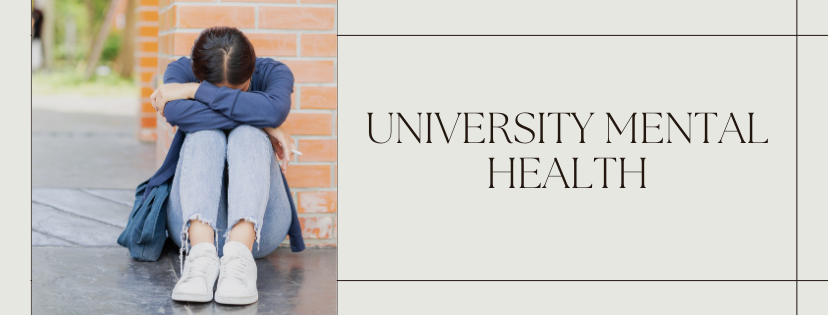Recently, a student took her own life whilst alone in her university halls over the summer. Sadly, the university have not released any form of statement in regards to the heartbreaking event. Whilst this may be due to the families wishes of privacy during this time; they should still be taking this as an opportunity to promote their mental health and wellbeing services and offering their support to other students (existing and new), to show that there are people willing to help and support them if they are struggling.
After hearing this sad news, I took it upon myself to do some research into university mental health in the UK… here are two of the most recent (public) cases that I came across:
In 2021, Harry, a student at Exeter University, died by suicide after failing his final-year exams. After this happened, his parents looked into the suicide rates at the university and found that 10 other students had taken their own life in the last 6-years; with one of them studying the same course as Harry at the time of their death.
As a result of their findings, they demanded change. They campaigned to try and make is a legal requirement for all universities to publish their annual suicide rates and state which faculties the deceased were studying under so that new students (and their parents) can try to make the best choice for their education and their mental wellbeing. Unfortunately this change has not yet occurred.
In 2023 a student at Aberystwyth University, Charlie, reached out to the mental health services on his campus and made them aware that he was suicidal. Charlie then missed his following appointment with them and no one thought to check in on him. No call, no text, no email, no call to his parents; nothing. Just days later, he was found dead, having followed through with his thoughts.
I then spoke with some students (past and present) from various universities about their own personal experiences:
I recently spoke with a university counsellor to ask what would happen if a parent knew that their child was struggling with their mental health and well-being at university. I was told that they could not help unless the child had permitted them to share their struggles due to GDPR.
I remember occasional emails being sent out at certain points throughout the year, about the university mental health services on campus. I think you could use a booking system online if you wanted to speak to someone, however, I felt like the resources should have been more readily available and easily accessible.
I believe the main thing that universities care about is your tuition fees. Whilst I have not personally struggled with a mental health condition, there was a time when I was feeling very low and was contemplating dropping out of university as a result. After I missed a field trip, I contacted one of my tutors to divulge my feelings. In short, their response was, ‘Don’t be sad, university is important and you need to show up.’
When I was in university circa 2013-2018, mental health services were only really advertised if you were actively looking for them. I missed around 8-weeks of my first year as a result of both mental and physical health concerns. During this time, no one checked in on me despite missing many lectures and assignment deadlines. The general consensus seemed to be ‘you’re at university, you’re an adult, and if you do not ask for help you will not receive it.’ It is sad that things have not changed much since then.
It appears to be a common theme around the lack of advertising for mental health services (despite most, if not all universities having them!) It also seems that there is a lack of following up on students when they have been absent from lectures and/or missing assignments – I too can vouch for this, I recall being told ‘If you do not want to come to university and do not want to do your work, don’t expect us to chase you up. You are adults, if you do not want to prioritise your education, that is on you.’ – Whilst I understand this to oa certain extent, it should still be common practice to at least check in and see why the student has not been present and offer additional support should it be required.
In regards to GDPR, I understand this being the case, however, if a student has openly stated that they are having suicidal thoughts they should be referred to a crisis team and/or their parent or guardian should be notified as their safety should come above GDPR – this is something that needs to change.
If you are struggling, please locate your universities mental health services and or reach out to other helpful charities / professionals:
Help and Support:
If you or someone else are in immediate danger, please call 999.
The NHS have recently launched a new Crisis Helpline. If you are in urgent need of help in regards to your mental health, you can dial 111 and press 2
Mind Charity – Open Weekdays 9am-6pm – 0300 102 1234
Samaritans – ALWAYS Open – 116 123
CALM – Open 5pm – Midnight – 0800 58 58 58
The Mix (under 25s) – Text ‘THEMIX’ to 85258 – ALWAYS Open
Resources:
The Guardian: Parents urge UK universities to reveal student suicide rates


